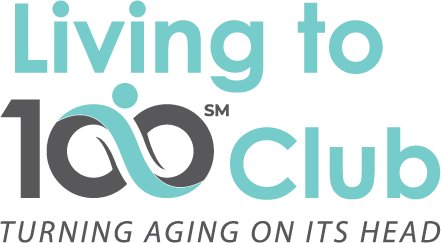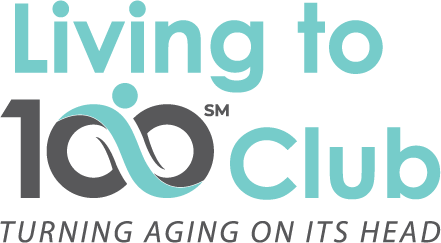Exploring the Wealth of Reliable Aging Resources
In today’s fast-paced world, staying informed about healthy aging and well-being has never been easier—or more important. With a constant influx of information, it can be challenging to distinguish between credible resources and misleading content. That’s why Module 11 of the Better, Longer & Happier card deck is designed to empower individuals, caregivers, and professionals with access to dependable, evidence-based information to support longevity and positive aging.
This module offers a comprehensive guide to locating trustworthy resources for physical health, mental well-being, and personal growth. This makes it easier to stay informed and inspired on the journey of aging well.
Why Reliable Information Matters
We live in a time when expert knowledge about aging, health, and longevity is more accessible than ever. However, the sheer volume of online information can often feel overwhelming. More importantly, not all sources are created equal.
Having access to vetted, high-quality resources helps older adults and caregivers make informed decisions about health management, lifestyle choices, and personal development. Whether it’s finding accurate health screening guidelines, exploring community programs, or staying updated on the latest research, Module 11 ensures individuals can access the most dependable, practical, and evidence-based information available today.
Key Resources for Aging Well
Module 11 curates an impressive range of tools and platforms designed to simplify the search for accurate health information. Some highlights include:
- Health Screening Guidelines: The National Library of Medicine provides recommendations for routine screenings, including tests for diabetes, blood pressure, and cancer, ensuring proactive health management.
- Educational Videos: Access to educational videos from reputable organizations like the National Institute on Aging (NIA), which offer short, informative clips on topics ranging from healthy nutrition to preventing cognitive decline.
- Online Learning Platforms: Coursera and similar platforms offer courses on aging and health, developed by leading universities and experts. These courses can be beneficial for both personal growth and professional development.
- Government Resources: Tools like MyHealthfinder from the U.S. Office of Disease Prevention and Health Promotion offer personalized health recommendations based on age and gender, helping individuals stay proactive in managing their health.
Finding Local Resources and Support Services
One of the greatest challenges older adults face is locating local services and support systems that can enhance their quality of life. Module 11 simplifies this process by directing users to:
- Senior Center Locators: Tools to find local senior centers, which often offer social activities, wellness programs, and meal services for older adults.
- State and Local Departments on Aging: Links to government-run resources that provide essential services such as transportation, health insurance counseling, and caregiver support.
- Virtual Counseling Services: Vetted online therapy platforms, many endorsed by the National Council on Aging, which make professional mental health services more accessible to older adults with limited mobility.
Tools for Empowering Personal Growth and Lifelong Learning
The pursuit of knowledge doesn’t stop with retirement. In fact, lifelong learning is essential for maintaining cognitive health and a sense of purpose. Module 11 encourages personal growth through resources such as:
- The Aging Mastery Program: Developed by the National Council on Aging, this program helps older adults develop healthier habits related to nutrition, exercise, and social engagement.
- The 10 Keys to Healthy Aging: Created by the University of Pittsburgh, this evidence-based guide offers tools for reducing the risk of chronic conditions while promoting mental well-being.
- Harvard Health News: A free newsletter from Harvard Medical School offering regular insights on the latest medical advancements and healthy lifestyle practices.
How to Identify Reliable Online Information
A significant focus of Module 11 is teaching participants how to distinguish credible health information from unreliable sources. With the internet flooded with conflicting advice, knowing how to verify information is crucial.
The module provides practical tips such as:
- Evaluating Website Credibility: Asking questions like “Who owns this website?” and “Is the information reviewed by medical experts?”
- Checking for Scientific Backing: Encouraging the use of government sites like MedlinePlus and the National Institute on Aging for verified content.
- Avoiding Quick-Fix Promises: Identifying red flags like miracle cures or overly simplistic health claims.
Community Engagement and Peer Support
Staying informed isn’t just about personal research—it’s also about sharing experiences and learning from others. Module 11 highlights the importance of social connection and peer support by encouraging participation in:
- Private Forums and Discussion Groups: Safe spaces where older adults can share health tips, ask questions, and offer support to one another.
- In-Person Workshops: Local events at senior centers where participants can discuss health topics and learn together.
- Intergenerational Learning: Programs that encourage older adults to share their wisdom while learning from younger generations.
Inspiring Stories to Motivate Healthy Aging
Beyond providing educational content, Module 11 shares motivational stories from older adults who have embraced positive aging. These real-life examples include:
- Heather Lee’s Story: A 96-year-old Australian athlete breaking records and inspiring others to stay active at any age.
- Move Your Way Campaign: A married couple who adapted their physical routines and diet to stay healthy despite changing mobility.
- Centenarian Wisdom: A heartwarming video of individuals over 100 sharing their secrets to a long, fulfilling life.
About the Author
Dr. Joe Casciani is a seasoned geropsychologist with over four decades of experience working with older adults, focusing on healthy aging, mindset, and positive living. He is the founder of the Living to 100 Club. This is an inspiring platform dedicated to empowering older adults and caregivers with resources, expert insights, and community support. Dr. Casciani is also the author of the Better, Longer & Happier card deck series. This module series is designed to foster positive aging through engaging activities, evidence-based knowledge, and motivational stories. His lifelong mission is to help individuals embrace aging with confidence, purpose, and vitality.
Explore more at: www.livingto100.club
Purchase card decks at: www.livingto100.solutions


